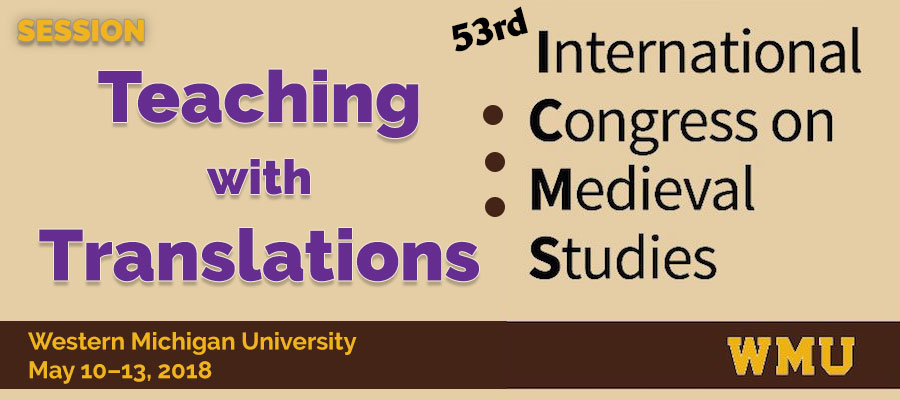Teaching with Translations, 53rd International Congress on Medieval Studies, Western Michigan University, May 10–13, 2018
As medievalists we place a premium on original-language research, and yet in the classroom we habitually rely on translations. Today the pedagogic side of this divide is undergoing revolutionary changes thanks to the proliferation of translations in print and on the internet. This new range of choices forces us to confront questions about the role of translation in the classroom. To choose between, let’s say, a poetic paraphrase and a literal prose rendering is to privilege one pedagogic method over another.
It’s not that such questions have never crossed our minds before, but they had less urgency when teachers had fewer alternatives. The pedagogy is implicit, for example, when instructors single out key words in the original for special explication, which has the advantage of putting our training to good use. As a time-honored tactic the rhetorical move of saying “let me tell you what this word really means” has the appeal, for students, of gaining privileged access to inside knowledge, but at the same moment it generates a shared suspicion because the translation doesn’t convey what the original says.
This session has both a theoretical and practical focus. What is the role of translation in the classroom? Is one kind of translation preferable to others? How does the relation between original and translation change from one discipline to another? From one genre to another? Is there an advantage to showing the original along with the translation even if students lack the competence to read it?
Session contact
Daniel Donoghue, Harvard University
Sponsored by the Dumbarton Oaks Medieval Library
